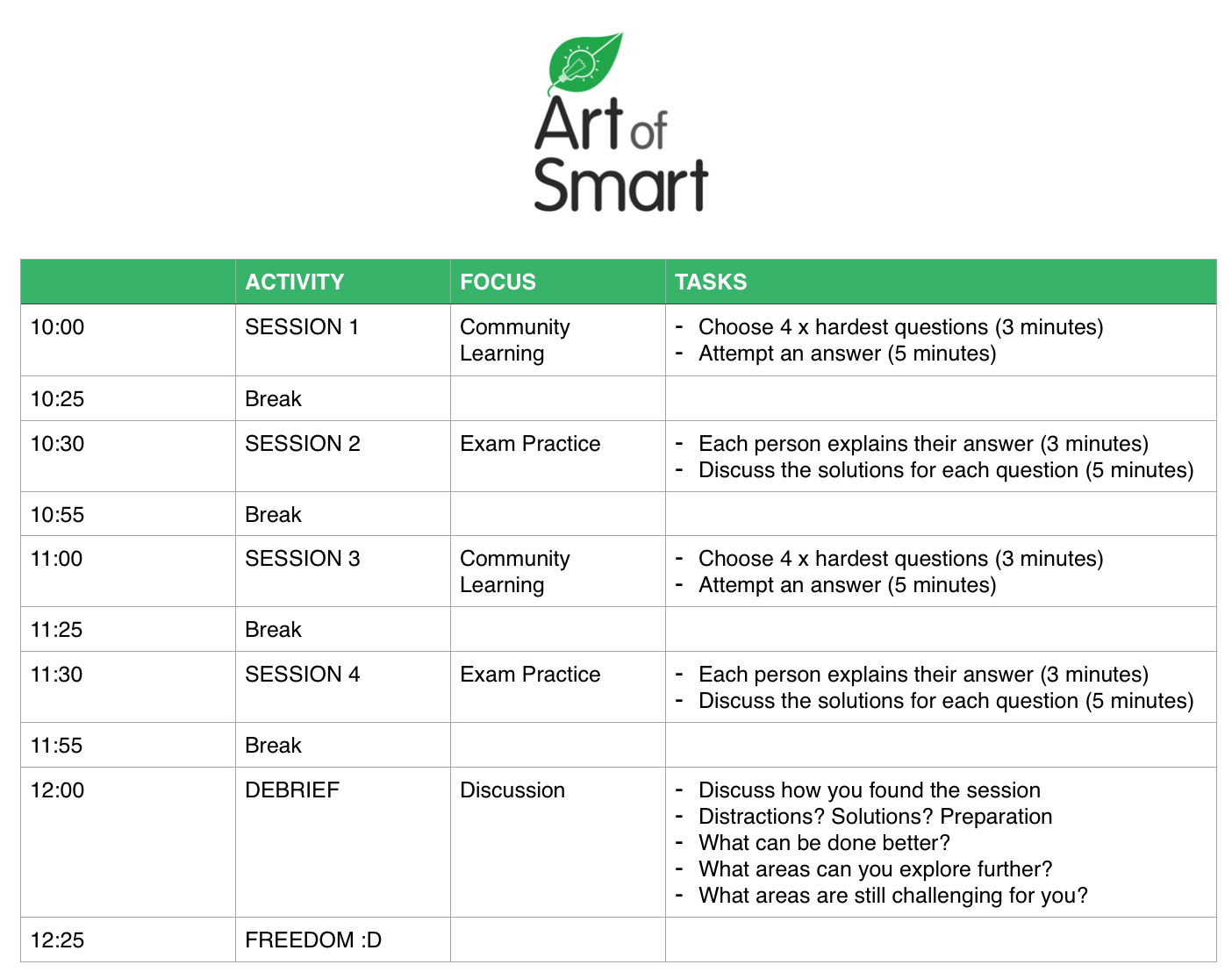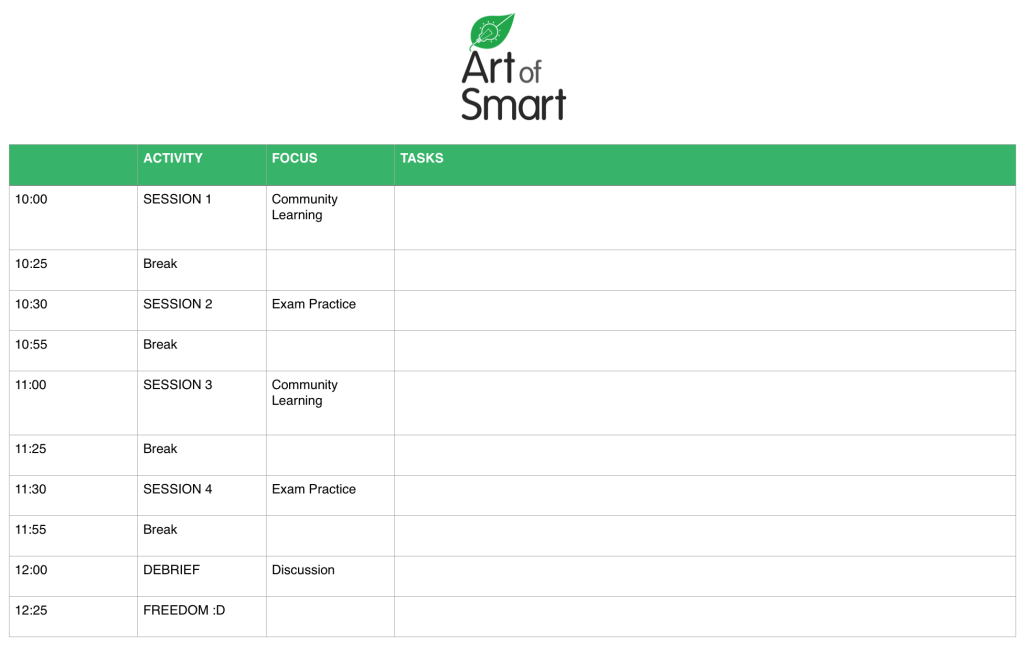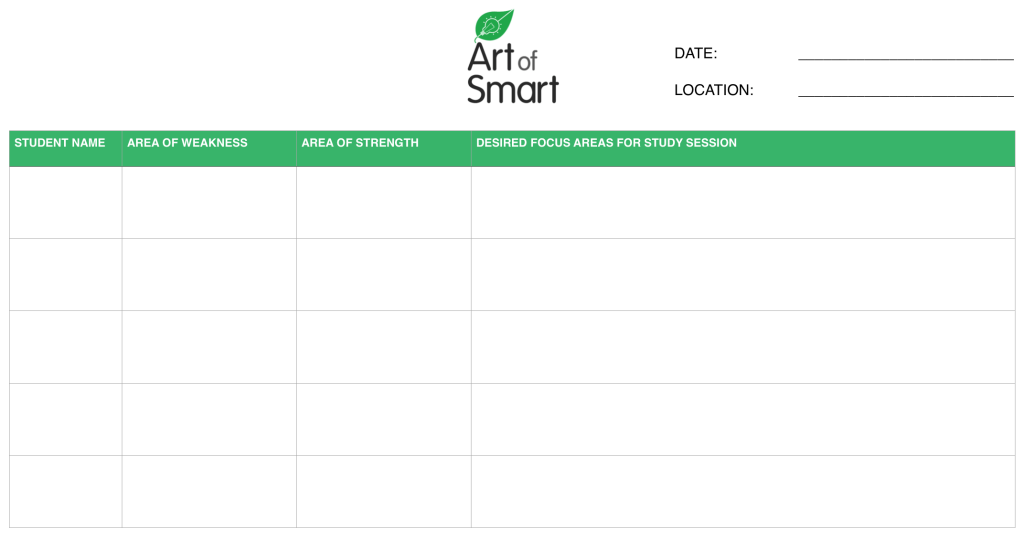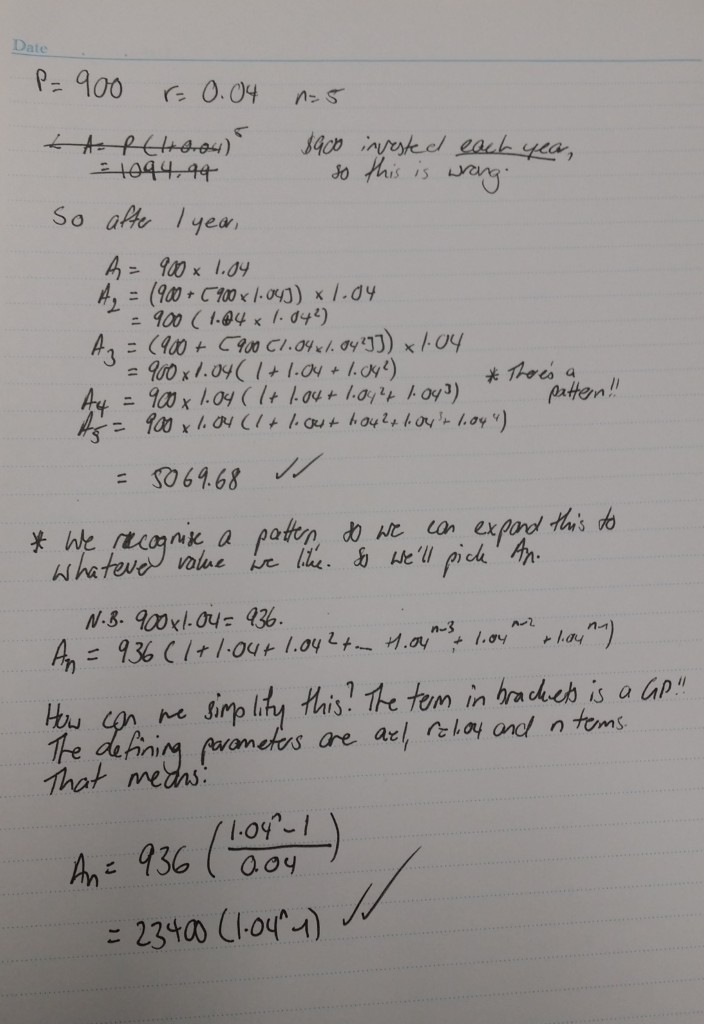Group study is a notoriously fickle beast – research from the University of Pittsburgh suggests team learning increases retention and motivation, and reduces the possibility of mistakes, which is why a maths study group is a great idea!
But it’s so hard to actually get anything done…
That’s where we come in! There’s plenty of secrets to keeping your head above water!
In this article, we’ll walk you through, step by step to creating the ultimate maths study group, complete with study tips and session outline suggestions!
So, what are you waiting for? Let’s dive in!
Why is studying Maths so difficult?
The 4 Step Plan to Running A Kickass Advanced Maths Study Group
Step 1: Plan a time and place
Step 2: Find 2 difficult questions on topics you struggle with
Step 3: Attempt to answer the questions
Step 4: Create a session outline
Why is studying Maths so difficult?
The problem lots of students have is they like to reduce maths to a little bundle of formulae – unfortunately, it’s far, far too complicated for that, even at the relatively simplistic high school level.
Knowing the formula is important, but more important is knowing how it works, and the best way to learn that is to learn it from a peer, or teach it to a peer. That’s what this session is built to do. It’s structured using the Pomodoro technique, because it’s a super effective way to keep your brain on top form.
Need personalised support? Check out how our expert K-12 tutors in the Liverpool area and Sutherland Shire can help you!
The 4 Step Plan to Running A Kickass Advanced Maths Study Group
Your study session should look something like this:
Why 25 minute blocks? 25 minutes is enough time to reduce internal and external interruptions on focus and flow, and allows for a sharper focus of one’s attention upon a task.
You can download and fill out the study session planner below!
Step 1: Plan a time and place
First up, organise a time and place and make sure you have access to a whiteboard!
Struggling to find a place? We’ve rated loads of libraries so that you can find the best one!
Either in a group, or online, make a time to settle on two topics that you all seem to have trouble.
To help you with this, here’s a template you can all pass along to one another to fill out!
Download it now! Click here for a PDF, or Click here for a JPG.
Step 2: Find 2 difficult questions on topics you struggle with
Have everyone go and find the two most difficult questions they can on these topics – using past papers, text books or any other resource you may have on hand, so long as it provides a solution.
To help guide yourself, figure out what the allotted time is for the question, and time trial your capability of solving it.
For example, if the paper is 60 marks and to be done in 1 hour, and the question is worth 5 marks, then spend 5 minutes on it! If you aren’t confidant in a correct answer in 5 minutes, then mark it as being difficult.
Step 3: Attempt to answer the questions
Everyone also has to pick a past paper, and attempt the hardest question in the paper.
Make sure you don’t overlap with a question from from the two difficult topics.
Also, if you’re meeting in a public place like a library or the like, it pays to check the website or call ahead to make sure you’re not inconveniencing anyone, or being inconvenienced by anyone.
Step 4: Create a session outline
Last but not least, make sure everyone knows what the plan is! Speaking of, what is the plan exactly? Let’s find out!
Sessions 1 and 3 – Community Learning
These two session are based on active community learning – they’re designed to get you engaging really actively with the content and thinking about maths in a more abstract way.
Pick the hardest question to start.
Pick a topic from your two – for argument’s sake, let’s go with Sequences and Series. Have the person that brought that question forward and work on the whiteboard. Everyone can throw in attempts at answers to try and crack the problem!
If you’re struggling, link it back to the theory. For example, this is about Sequences and Series, so there has to be one of those two things in there somewhere. As yourself the following:
- Is it an AP? Or is it GP?
- Are solving for a specific term, or finding a partial sum?
- Or a limiting sum?
You (should) know how to do all those things, so keep them in mind when you’re looking for the answer. And it doesn’t matter if you get it wrong at first – just wipe it off and start again! Take this question, for example.
$900 is invested at the beginning of each year into an account earning 4% p.a. compounded annually. How much is this investment worth at the end of 5 years? How much is it worth after n years?
At the end, your solution may look a bit like this (except I hope your handwriting is better):
Keep going until until you’ve either run out of questions or you’ve reached your 25-minute limit (that’s what the Pomodoro method is all about!).
Then swap to the other topic and do the same thing in session 3.
After that, break time for 5 minutes!
Sessions 2 and 4 – Exam Practice
This session is targeted at not only engaging with the content but with your own exam approach and thought patterns.
Get every person to explain the way the solved that “super-hard” question they did to prepare for this session.
This might sound pretty silly, and it’s true that you have to approach this right to get the true value out of it. You need to give a really thorough walkthrough of your solution, and be extremely critical of other’s explanations.
PROTIP! Imagine you’re trying to explain some ridiculously complicated video game puzzle to a younger brother or sister who hasn’t learned it, rather than a maths question to someone you know has a better rank than you in maths.
And when you’re critiquing someone else, NEVER accept ‘you just use this formula here’ as an explanation – they should at least be able to tell you what they’re using the formula to do. The entire point in this session is to liberate your thinking a little.
Maths isn’t processed based so much as to be truly reduced to a formula sheet – you need to have some rudimentary understanding of what you’re doing, and why it works.
You’ll find having to explain it out loud will help you with this, as well as figuring out what needs to go onto the paper to make your working clear to the marker.
Remember, you’re not marked on what your write, but on the working out you produce. They’ll love you if you make their life as easy as possible with neatly written, well-ordered and well-explained working, using proper mathematical conventions.
Again, wrap it up after 25 minutes, take a 5 minute break, then move on to the next session!
And that concludes our 4 step guide to running an effective Advanced Maths study group – good luck!
Looking for some extra help with HSC Mathematics?
We pride ourselves on our inspirational HSC Mathematics coaches and mentors!
We offer tutoring and mentoring for Years K-12 in a variety of subjects, with personalised lessons conducted one-on-one in your home, in Castle Hill, or at one of our state of the art campuses in Hornsby or the Hills! Our 1-1 comprehensive tutoring in Bankstown can help you reach your Band 6 goal for HSC Maths!
To find out more and get started with an inspirational tutor and mentor get in touch today!
Give us a ring on 1300 267 888, email us at [email protected] or check us out on TikTok!
Matt Saunders is a huge nerd who first got into writing through fanfiction. He’d known science was the path for him since a young age, and after discovering a particular love of bad chemistry jokes (and chemistry too), he’s gone onto to study Forensic Chemistry at UTS. His HSC in 2014 was defined in equal parts by schoolwork and stagecraft, which left him, weirdly enough, with a love of Maths strong enough to inspire him to tutor any level, along with 7-10 Science and HSC Chemistry.







